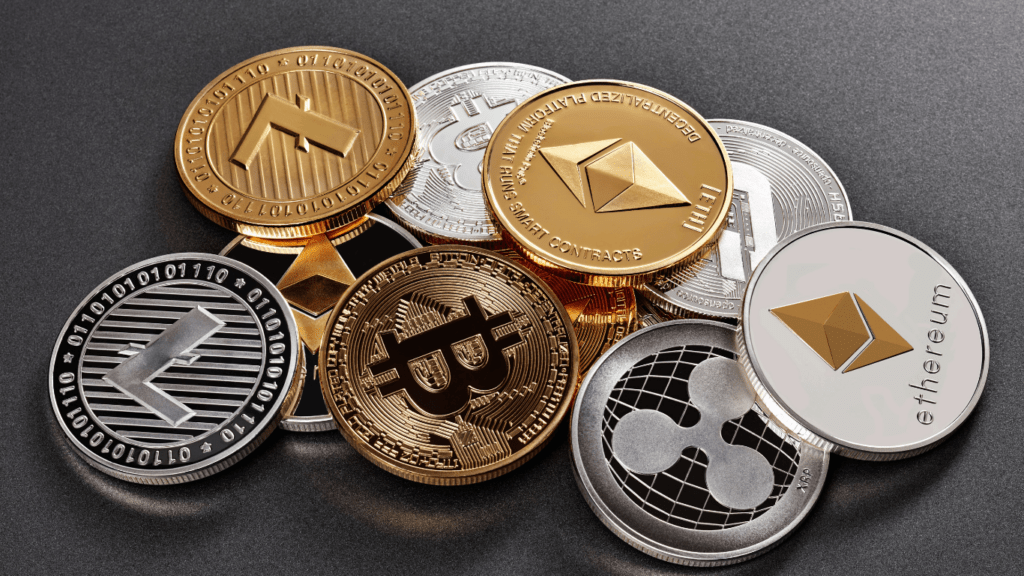Cryptocurrency has been shaking up industries left and right, and gambling is no exception. As digital currencies like Bitcoin and Ethereum gain popularity, they’re carving out a unique space in the world of online casinos and betting platforms. What once seemed like a niche technology is now becoming a driving force behind innovation in the gambling industry.
Benefits Of Cryptocurrency For Gamblers
Cryptocurrency introduces significant advantages for gamblers, making it a preferred choice in the gambling industry. These benefits enhance user experience and offer practical solutions to longstanding challenges.
Enhanced Security And Privacy
Cryptocurrency enables secure transactions, reducing risks associated with traditional payment methods. Blockchain technology encrypts user data and ensures immutability, protecting gamblers from fraud. Privacy-conscious individuals find crypto advantageous since transactions don’t require sharing sensitive personal or financial information. Casinos accepting Bitcoin, Litecoin, or other cryptocurrencies often allow anonymous accounts, further enhancing discretion.
Faster Transactions And Lower Fees
- Digital currencies facilitate rapid deposits and withdrawals, bypassing delays in traditional banking systems.
- Payments are often processed within minutes or hours, compared to several days with conventional methods.
- Transaction fees are typically lower than those of credit cards or wire transfers, making gambling more cost-effective.
- Ethereum’s network fee can be as low as $0.50, depending on blockchain traffic, whereas bank fees may exceed $10 per transaction.
Global Accessibility
Crypto’s decentralized nature provides access to gambling platforms worldwide, even in regions with strict banking restrictions. Anyone with internet access can participate without relying on localized payment systems. This global inclusion allows gamblers to explore international platforms, broadening gaming options. Digital wallets like Binance or Coinbase make it easy to buy, store, and transfer currencies regardless of location.
How Cryptocurrency Is Changing Online Casinos
Cryptocurrency is reshaping how online casinos operate by:
- increasing transparency
- enhancing user privacy
- expanding global accessibility
These advancements are enabling a more seamless and secure gaming experience for players worldwide.
Provably Fair Gaming
Cryptocurrencies support provably fair algorithms, which verify game outcomes through cryptographic methods. Players can independently audit results to ensure fairness, reducing the likelihood of manipulation. For example, Bitcoin dice games often publish hashed seed values that players can cross-verify post-bet. This transparency builds trust between casinos and users.
Crypto-Exclusive Gambling Platforms
Some platforms cater exclusively to cryptocurrency users, offering games and features designed around digital assets. These casinos accept payments in coins like Bitcoin, Ethereum, and Litecoin instead of fiat currency. Crypto-specific features, such as token-based rewards and blockchain-integrated jackpots, enhance their appeal. Stake and BC.Game are examples of platforms tailored to digital currency users.
Anonymity At Online Casinos
Cryptocurrencies allow players to register and gamble without sharing personal data. Transactions involve wallet addresses instead of sensitive information, reducing exposure to identity theft. This anonymity appeals to users in regions with restrictive gambling laws or those prioritizing privacy during online transactions.
Challenges And Concerns With Crypto Gambling

While cryptocurrency offers numerous benefits for the gambling industry, it also presents several challenges and concerns. These issues can affect both operators and users, potentially limiting the full adoption of crypto in gambling.
Regulatory Issues
The lack of consistent regulations for cryptocurrency gambling creates legal uncertainty. Since cryptocurrency operates in a decentralized manner, its usage in online gambling remains unregulated or partially regulated in many regions. This can lead to compliance challenges for platforms operating internationally, as they must navigate differing laws. For users, this ambiguity increases the risk of accessing platforms that may not adhere to ethical or legal standards.
Volatility Of Cryptocurrency
Fluctuations in cryptocurrency values can impact both players and operators. A deposit made in Bitcoin, for example, may lose significant value within hours, affecting wagers and payouts. Similarly, operators often face the challenge of managing their reserves amidst these price swings. Volatility introduces unpredictability, making it difficult to maintain consistent transactional value for both parties involved.
Risks Of Unregulated Platforms
Unregulated crypto gambling platforms expose users to various risks. Without oversight, these platforms may operate unfairly or engage in malicious activities, such as withholding payouts. User funds may also lack protection if the platform abruptly shuts down or falls victim to hacking. An absence of accountability mechanisms further diminishes trust, creating skepticism towards cryptocurrency-based gambling services.
The Future Of Cryptocurrency In Gambling
Cryptocurrency continues to transform the gambling industry by driving innovation and influencing how players interact with platforms. Its role goes beyond payments, shaping technological advancements and redefining gaming experiences.
Emerging Trends And Innovations
Crypto-powered gambling platforms are introducing decentralized applications (DApps) to enable secure, transparent gameplay. These apps use blockchain technology to ensure fairness in betting outcomes and eliminate intermediary interference. For example, platforms are integrating features like smart contracts to automate payouts, reducing disputes and wait times.
The emergence of crypto-exclusive platforms is another significant trend. Many of these offer unique incentives like token-based reward systems, enhancing player engagement. Non-Fungible Tokens (NFTs) are also being adopted in gambling, allowing players to trade or use digital collectibles within games.
Cross-platform operability is evolving as platforms embrace multi-currency wallets, making it easier for users to switch between cryptocurrencies. This flexibility expands access to games, boosting inclusivity.
Adoption Of Blockchain Technology
Blockchain technology underpins many enhancements in gambling ecosystems by providing verifiable and immutable ledgers. Transparent auditing systems are becoming integral to gambling operations, allowing players to verify game integrity and transaction records.
Operators are increasingly adopting blockchain for loyalty programs, offering crypto rewards instead of traditional points or bonuses. This shifts value directly to users, making loyalty schemes more appealing.
Smart contracts streamline processes like securing user funds in escrow until specific criteria are met, addressing risks tied to manual operations. For instance, blockchain-based sports betting platforms guarantee payout accuracy through predefined blockchain protocols.
The decentralized nature of blockchain reduces dependency on centralized authorities, delivering greater security and sovereignty to both operators and players. This adoption ensures reduced fraud risks, appealing to higher-security markets and jurisdictions.



 Alex Hobart is the founder of Gamble Time Hub, a cutting-edge platform dedicated to delivering up-to-date gambling news, in-depth sports betting insights, and compelling high-stakes gambling stories. With a sharp eye on the evolving landscape of betting, Alex created the hub to inform, engage, and empower both new and experienced gamblers. Committed to promoting smart and safe play, Alex also champions responsible gambling through practical tips and educational content, making Gamble Time Hub a trusted resource in the gambling community.
Alex Hobart is the founder of Gamble Time Hub, a cutting-edge platform dedicated to delivering up-to-date gambling news, in-depth sports betting insights, and compelling high-stakes gambling stories. With a sharp eye on the evolving landscape of betting, Alex created the hub to inform, engage, and empower both new and experienced gamblers. Committed to promoting smart and safe play, Alex also champions responsible gambling through practical tips and educational content, making Gamble Time Hub a trusted resource in the gambling community.

